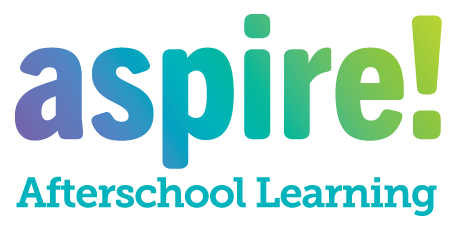Earth, Wind, & Aspire
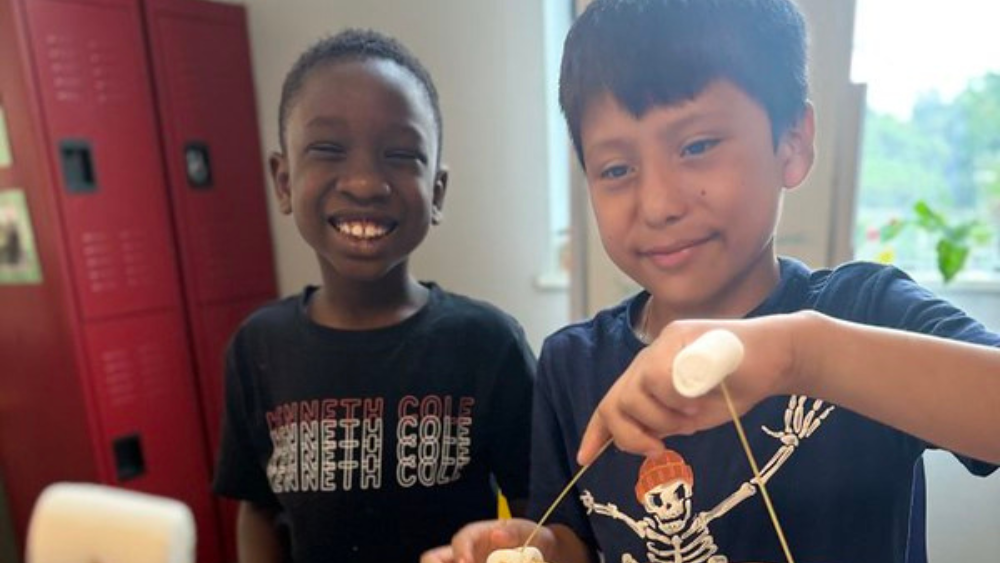
It’s hard to believe, but Aspire’s summer camp is already over halfway over. The days are flying by, and our students are making the most of their time at camp with various projects, activities, and lessons. Weeks three and four continued our theme of Avatar: The Last Airbender by highlighting earth and air-related lessons that made students think more deeply about the environment around them and apply their academic learning to real-life scenarios.
Aspire’s summer camp is designed to not only be fun and engaging but to be academically enriching. This means daily reading time, projects that reinforce the curriculum students receive during the school year, and lessons that make sure students are ready when school starts again in August. These types of enrichment activities are especially important for students who families cannot afford summer learning programs. Reading books like Oh, the Places You’ll Go and practicing their STEM skills daily helps students develop curiosity, confidence, and resilience. For some examples and highlights of the past two weeks, keep reading below!
Week Three: Earth
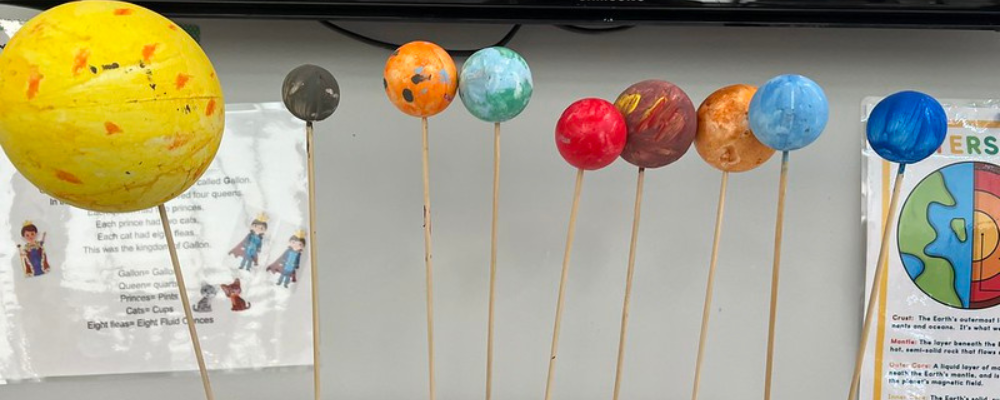
During week three of summer camp, students focused on lessons and activities that related to the Earth. This included lessons on the planet Earth, plants, and types of rocks and soil. Students’ favorite activities from this week included:
- Constructing models of the solar system. The Earth is just one of the planets in our solar system, and students got a better understanding of the location and environments of different planets by creating clay representations.
- Understanding soil and foundations. Students worked together to create the tallest tower they could from spaghetti noodles and marshmallows. Students learned how these materials impacted what they could build and discussed the impact their building might have on the environment around it.
- Learning new words in an American Sign Language (ASL) lesson. Most of Aspire’s students speak two languages, and during this lesson, they learned words in a third language! They picked it up very quickly, and can now say “Earth,” “solar system,” “environment” and even a whole sentence. In English, we’d say “It’s important to take care of the environment.” In ASL, which has different grammar, you would say “Environment take-care important.”
- Researching their favorite planets and practicing their presentation skills by giving a summary to their classmates.
- Naming the layers of the Earth. Using a jar, food coloring, and rice, students built mini-Earths with a red inner core at the bottom, an orange outer core, a yellow mantle, a brown crust, and a thin green layer to represent the surface.
Week Four: Air
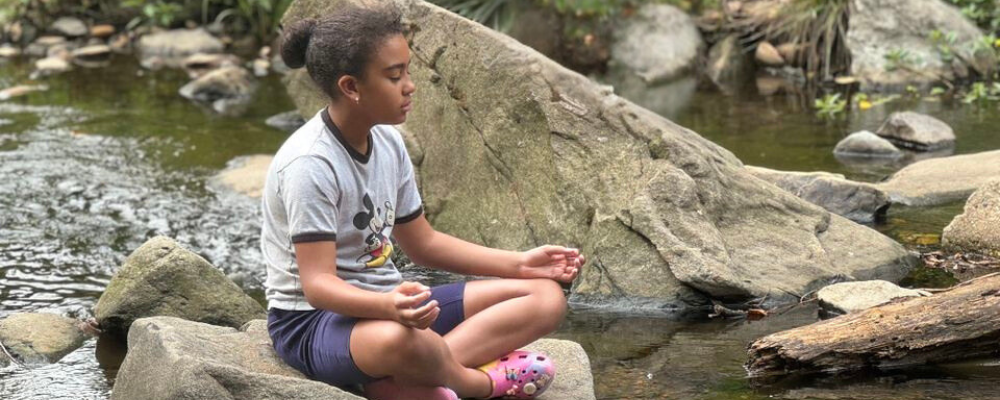
Week four highlighted the element of air, with students participating in many hands-on, full-body lessons that got them moving, thinking, and learning. What were the most impactful lessons?
- A social-emotional lesson that taught students a breathing exercise. They went for a short nature walk and then found places to sit where they could practice this exercise and meditate.
- Students built their own kites and took turns running up and down the hallways to see how their kites flew. This got them moving around and provided them with a hands-on lesson in aerodynamics.
- An interactive weather activity where students practiced becoming meteorologists. They had fun building anemometers to measure wind speed and learned more about the weather.
- An exciting demonstration of how their bodies can impact the environment. Students played fun games with a huge parachute. This lesson combined physical education with a practical demonstration of how moving their bodies in different ways changed how the parachute caught the air and fell back to the ground.
A special highlight of week four was partnering with Arlington Mill Community Center’s 55+ Program, where our middle school boys did a great job explaining to our 55+ friends how to make a Spotify playlist.
Community Garden
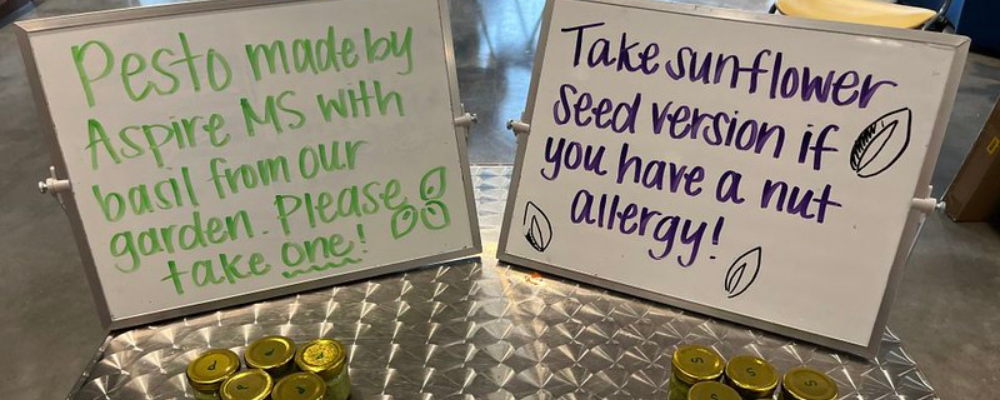
Aspire’s Community Garden is thriving! Every day during summer camp, a different class walks to the garden to tend their unique plot and participates in fun activities to help them learn about healthy food, environmental sustainability, and personal responsibility. During weeks three and four, students participated in two main garden activities. First, they took careful clippings of a few herbs and propagated them. That means they took clippings of the plants, put them in a small container of water, and waited for roots to grow. Soon, they will re-pot the plants in soil for an Aspire family to take home and start mini gardens.
Second, students got their first taste of the food they’re working so hard to grow! After harvesting some basil leaves, they learned to make pesto with pine nuts, olive oil, cheese, seasoning, and lemon juice. Our middle school class did this lesson first to try it out, and then our elementary school students got to make their own batches of pesto! Not only did they learn a new recipe, but they also jarred the leftovers for families to take home.
